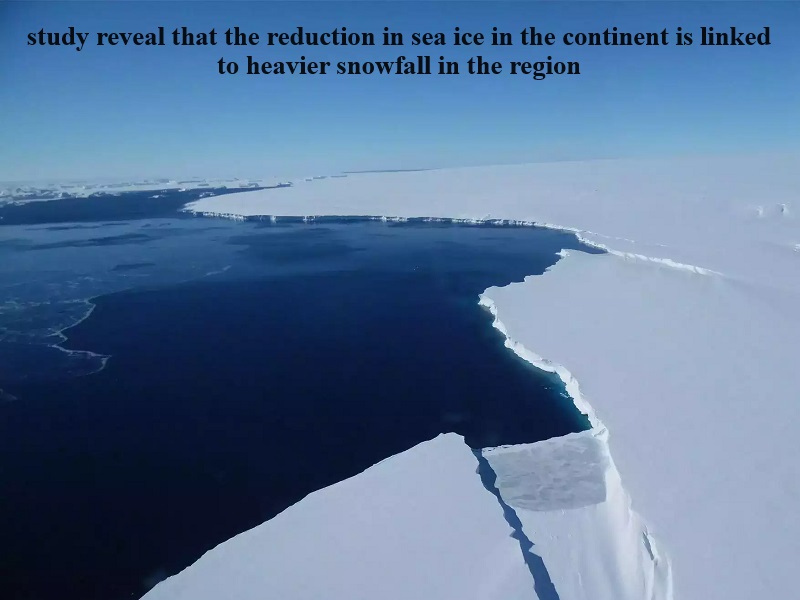
A noteworthy phenomenon is unfolding in Antarctica, where a recent study has uncovered a connection between reduced sea ice in the region and increased snowfall. This emerging trend could, to some extent, counteract the effects of melting ice, thus decelerating the rise in global sea levels.
Published in Geophysical Research Letters, the study focused on areas near the Amundsen Sea in West Antarctica. Scientists discovered that ice-free ocean surfaces contribute to greater precipitation and snowfall in the region. However, they emphasize that the augmented snowfall is not sufficient to completely offset the consequences of climate change and ice melting.
Luke Trusel, co-author of the study and assistant professor of geography at Penn State, highlighted the significance of considering the amount of snowfall in the region to comprehensively grasp the impact of ice melting on global sea levels. He emphasized that, for Antarctica, understanding the interplay between snowfall and ice melting is crucial to evaluating their combined impact on the ice sheets.
Sea ice, according to researchers, plays a pivotal role in influencing the evaporation process around the Arctic region. The absence of sea ice intensifies evaporation, leading to increased snowfall in those areas.
Jessica Kromer, lead author of the study and a doctoral candidate at Penn State, emphasized the multifaceted role of sea ice, explaining that it reflects sunlight, aids in cooling the planet, and affects interactions between the atmosphere and ocean, including oceanic evaporation. The researchers noted that precipitation can vary significantly from year to year, impacting sea levels and mitigating the effects of ice discharge from the sheets.
As the planet continues to warm, accelerated melting of sea ice in Antarctica is expected, further amplifying evaporation and subsequent snowfall. While this may temporarily offset rising sea levels, it is not a long-term solution.

Post Your Comments